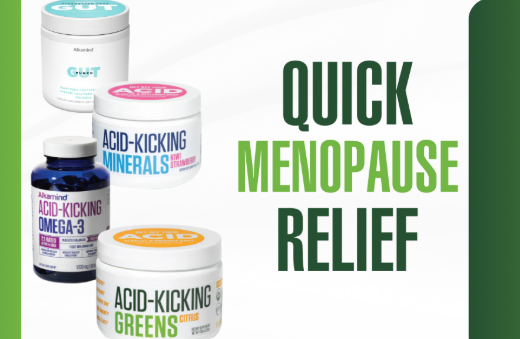
As the weather gets colder and we all spend more and more time indoors, we know that colds, flu, and viruses are more likely to spread.
We often think that’s because we’re breathing circulated indoor air rather than being outside, particularly in crowded places like airports, schools, and restaurants.
While that likely plays a part in increased virus circulation, it’s not the only reason you’re more likely to get sick in the winter.
Today, we’re going to talk about the other reason – one that is hidden in plain sight.
You don’t want to ignore the findings of the research we’re going to discuss today because it could be the difference between you getting sick all winter long or not. Or even worse, facing severe outcomes from getting sick, or sailing through a minor inconvenience.
It’s widely accepted that viruses are more likely to spread during winter months. This even happens around the world. In the southern hemisphere where their winter is our summer, cold and flu season takes place during colder temperatures even as viruses don’t spread much simultaneously here where we live when it’s hot.
Some think this is simply because of colder temperatures. That conclusion doesn’t hold up well considering “colder” has a very different meaning in south Texas than it does in Vermont, and yet both places experience an uptick in viruses during the winter.
Others believe this is solely because we spend more time indoors, cooped up together in rooms with circulating air that may carry viruses and bacteria. If you’ve ever gotten sick from an airplane, this is the same idea.
Again, that’s likely a part of why we tend to get sick more in the winter, as outdoor air is less likely to circulate germs than indoor air. But it’s not the whole story.
After all, why do some people get sick over and over again all winter long, while others don’t even have a sniffle? Furthermore, why do some people get critically ill from the flu and other viruses when others sail through them?
 What is the other factor that contributes to viruses spreading during the winter that is hiding in plain sight?
What is the other factor that contributes to viruses spreading during the winter that is hiding in plain sight?
Vitamin D levels. Over the years, study after study has come to the same conclusion: seasonal flu is most likely related to lack of vitamin D during the winter months.
One study found that people who get more UVB exposure, which is how the body creates vitamin D on its own, are less likely to die from the flu.
Other lung diseases like tuberculosis are less likely to occur in people with sufficient levels of vitamin D. People used to think that moving patients with tuberculosis to the desert improved symptoms because of dryer air, but it may have been the increased sun exposure all along.
And as we’ve seen over the last couple of years, vitamin D is protective against severe disease outcomes. It’s even thought that vitamin D deficiency increases the risk of testing positive for COVID in the first place, in addition to hospitalization and death.
82% of patients with severe disease were vitamin D deficient, according to one study. Another found that those with low levels of D were 12 times more likely to die than those with sufficient levels.
Think about this. Of the risk factors for severe COVID, vitamin D level is the only one that is easily changed. You cannot say that about weight, age, diabetes or other diseases, or even smoking.
If you’re going to take one thing away today, it’s that you need to be supplementing with vitamin D in order to avoid both common illnesses and severe disease.
Why is this the case? Science is beginning to paint a picture of the role vitamin D plays in the survival and replication of the virus.  The body is less likely to create the dreaded cytokine storm of inflammation seen in severe cases. It’s also thought that vitamin D helps maintain proper blood clotting ability and reduction of heart tissue inflammation.
The body is less likely to create the dreaded cytokine storm of inflammation seen in severe cases. It’s also thought that vitamin D helps maintain proper blood clotting ability and reduction of heart tissue inflammation.
In addition to that, vitamin D plays important roles that science has long established: it activates the body’s defense system, enhances immunity cells, and improves overall lung function.
When you add it all up, it’s more and more clear that getting plenty of vitamin D is the key to preventing getting sick in the first place, and preventing illnesses from turning severe.
What do you have to lose?!
And yet, 42% of Aericans are vitamin D deficient. If you aren’t already taking a D3 supplement, let this be a warning to you that you should start.
Yes, you should also be getting 20 minutes of sun per day – even in the winter – to aid your body’s natural production of the hormone that is vitamin D. But if you live in the US, the sun is not enough in the winter. You need to supplement also.
All of that said, D3 supplementation alone is NOT enough. In order to maximize the benefits of D3, you have to pair it with the key that promotes its absorption, which is vitamin K2.
Not only will this powerful combination strengthen your immune system, but also it will provide you with stronger bones to prevent osteoporosis both today and long-term, and may reduce your risk of heart disease.
Vitamin K deficiency is linked to an increased risk of blood vessel calcification, a cause of heart disease. That may be because K2 works synergistically with D3 to keep calcium in bones and out of the heart, joints, kidneys, and brain – all places you do NOT want these key minerals.
That’s why D3+K2 team up for your bone health as well, making it possible to absorb calcium in the foods you eat and keeping it in the bones where it belongs.
Our new D3+K2 plant-based liquid supplement is made from the highest quality sources of D3 and K2, called MK-7, along with Organic oil, Organic extra virgin olive oil, and vitamin E to increase bioavailability, absorption, and assimilation.
There has never been a better D3 supplement available anywhere to prevent life-threatening deficiency.
Try new Aid-Kicking D3+K2 in Mint or Unflavored today!
GET OFF YOUR ACID!
Dr. Daryl
 Skip to content
Skip to content





